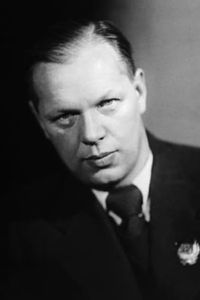Nikolay Pavlovich Okhlopkov was a renowned Soviet actor and theatre director who profoundly influenced the world of theatre, particularly in the Soviet era. Born on May 15, 1900, in Irkutsk, Siberia, Okhlopkov's passion for acting began to unfold in 1918, marking the commencement of his illustrious career.
As a theatre director, Okhlopkov was heavily influenced by Meyerhold's work, and his own directing style was characterized by innovative and unconventional approaches. In 1930, he took the reins of the Realistic Theatre in Moscow, where he introduced a revolutionary concept: placing spectators on the stage alongside the actors. This bold move aimed to re-establish the intimacy between the audience and the performers, breaking down the traditional barriers between the two.
Despite his efforts to create a more realistic theatre experience, Okhlopkov's work was met with controversy, and his theatre was eventually closed in 1938. However, this setback did not deter him, and he went on to join the Vakhtangov Theatre, where he continued to hone his craft.
In 1943, Okhlopkov founded the Mayakovsky Theatre, which would go on to become a bastion of his artistic vision and continue to thrive long after his passing. Throughout his career, Okhlopkov received numerous accolades, including the prestigious Stalin Prize and four USSR State Prizes.
Okhlopkov's impressive repertoire included a production of Hamlet at the Moscow Art Theatre in 1954, a milestone event that marked the first time the play had been staged at the theatre since World War II. Tragically, Okhlopkov's life was cut short when he passed away in Moscow on January 8, 1967.
Throughout his illustrious career, Nikolay Pavlovich Okhlopkov left an indelible mark on the world of theatre, and his innovative approach to directing continues to inspire generations of actors and directors to this day.













